7 Miracle Plants Gardeners Always Grow to Keep Pests Away
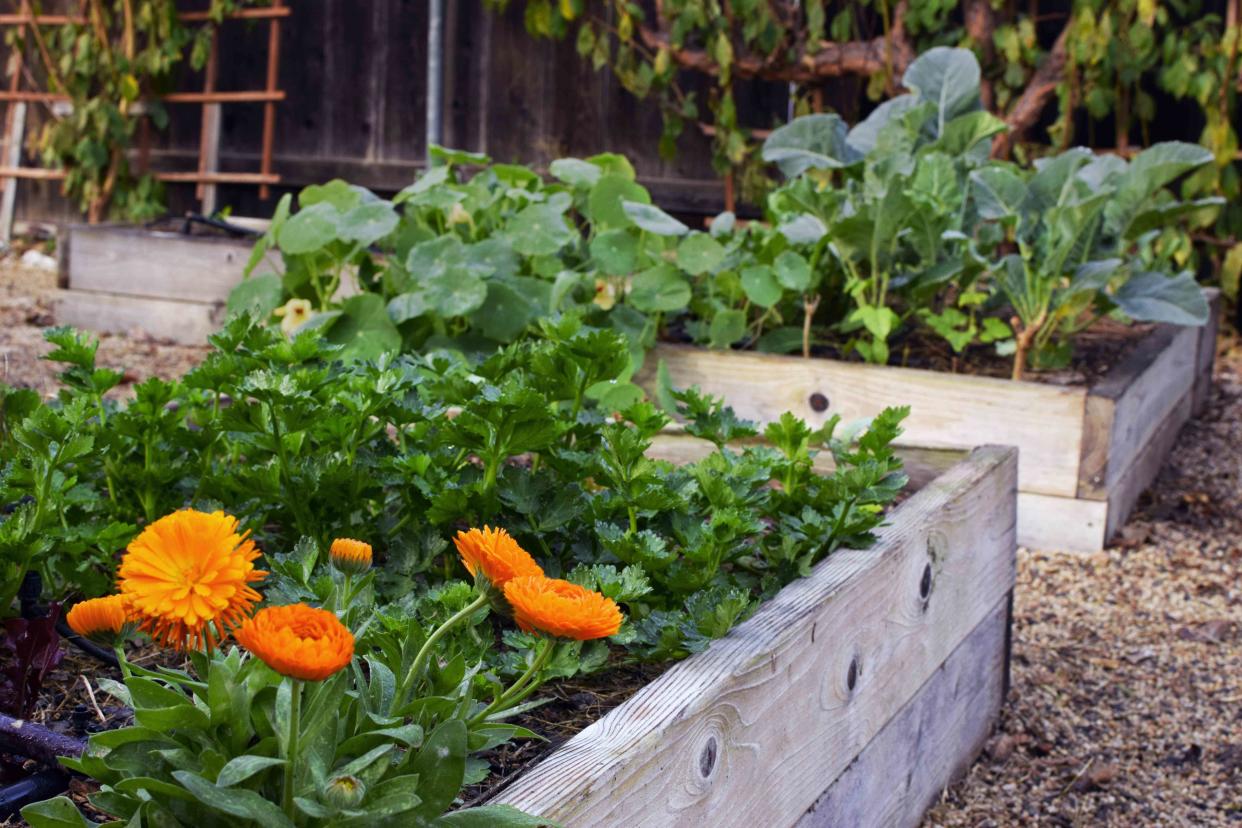
The Spruce / Randi Rhoades
Whether you're planting blooms for bouquets or fresh fruits and vegetables to enjoy this summer, one thing is certain: you won't be the only one interested in what's growing. Garden pests will like the look of your new plants just as much as you do.
To keep insects, worms, and rodents at bay, expert gardeners suggest companion planting, which acts as a natural deterrent amongst your flowers and veggies to confuse bugs' senses of smell.
We spoke to four gardening pros from around the world, and these are the seven miracle plants that received their stamp of approval this growing season.
Rosemary
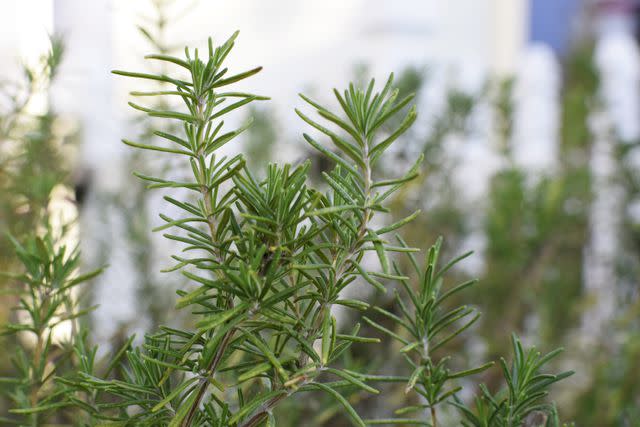
The Spruce / Randi Rhoades
One of the top herbs Spoonemore suggests planting to keep your vegetable garden clear of pests is rosemary.
"Herbs are a fantastic choice as companion plants," Carrie Spoonemore, the founder of Seed to Spoon, says. "They are more than just flavor boosters for your cooking—they're also natural defenders in your garden."
Thanks to its strong scent, rosemary is also often used to make a natural mosquito repellent and is effective at deterring insects.
Want more gardening tips? Sign up for our free gardening newsletter for our best-growing tips, troubleshooting hacks, and more!
Basil
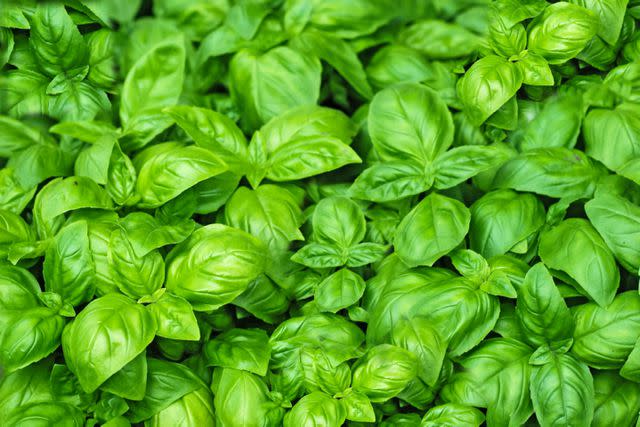
The Spruce / K. Dave
Perfect for picking to serve in a Caprese salad, growing summery herb basil is a go-to companion plant for naturally repelling a variety of insects— both in your garden and during your next outdoor hosting session.
"One of my favorite companion plants is basil, which I use to improve the flavor of tomatoes and keep hornworms at bay," Dagny Kream from The Cottage Peach says. "It also repels mosquitos, and can help give you a bigger tomato harvest—plus, you can multiply basil plants super-easily with cuttings."
Mint
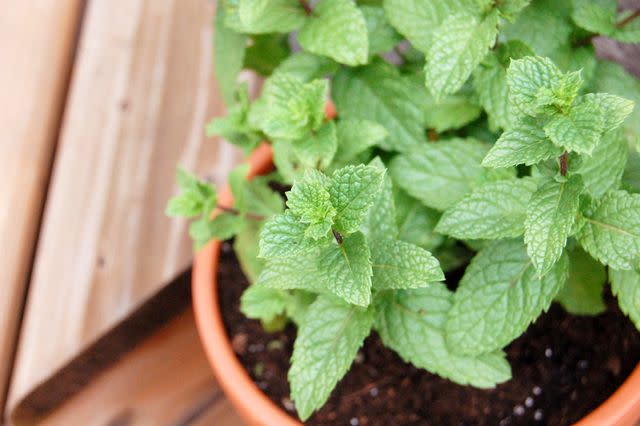
The Spruce / Cori Sears
We love to add the refreshing, uplifting scent and taste of mint to our beverages and desserts during the summer—but according to our experts, pests like insects and mice do not share the same affinity.
"The smell of mint wards off ants and aphids," Spoonemore explains. "Plus, this herb is easy to grow, and makes your garden smell amazing."
For gardeners hoping to attract more positive pollinators like bees or butterflies to their backyards, mint is also an excellent companion plant choice.
Thyme
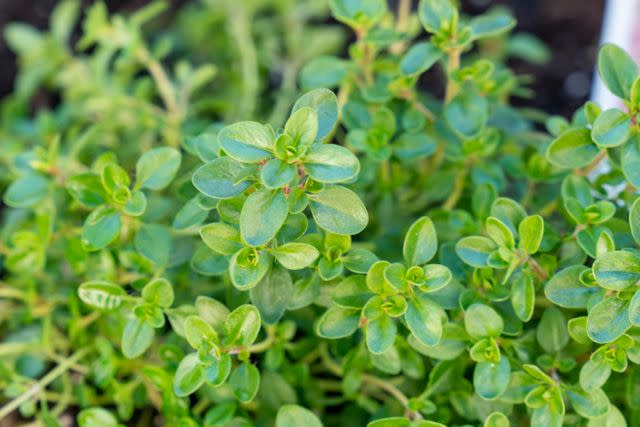
The Spruce / Almar Creative
For those living in warm and dry climates, another fragrant herb to try pairing with both your berries and vegetables is thyme— specifically lemon thyme. Like rosemary and mint, the scent is a natural bug repellent, effective on a variety of insects.
"Planting thyme near your strawberries can discourage worms, and enhance the health and yield of your plants, " Spoonemore says.
Allium/Chives
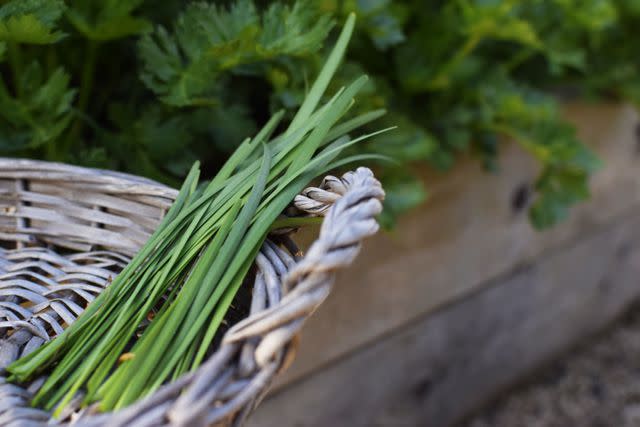
The Spruce / Randi Rhoades
"Chives are a great companion for carrots, tomatoes, and even roses," In the Cottage Garden's Amy Chapman says. "Their oniony scent is a defense mechanism that repels bugs like carrot flies and aphids—once you have a few plants, they can be multiplied by dividing them up."
The pest-repelling benefits chives provide are also present in the rest of the allium family, which includes recipe staples such as garlic, onions, and leeks, as well as flowering varieties, which cut flower gardener Emily Lucas especially loves to use in her beds.
Marigolds
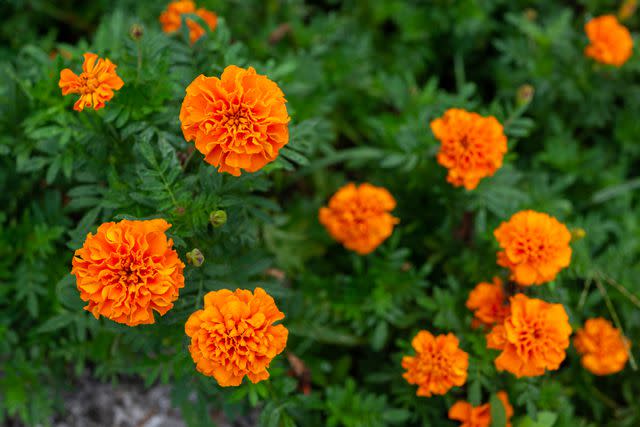
Getty Images / wulingyun
"The many varieties of marigolds aren't just pretty—they're pretty useful, too," Spoonemore says. "Their vibrant, scented flowers do more than just brighten up a garden—their scent and roots actually help repel pests like nematodes and aphids."
"I tend to plant marigolds and their relative, calendula, in all of my flower beds as a first choice for companion planting", Lucas adds.
Our gardening experts all recommend planting these bright blooms around the borders of garden beds to act as a first line of defense against pests.
"Pop some marigolds next to your tomatoes to keep tomato hornworms away, near your beans to deter bean beetles, or near cabbage and broccoli, where they can help keep cabbage moths at bay," Spoonemore suggests.
Nasturtiums
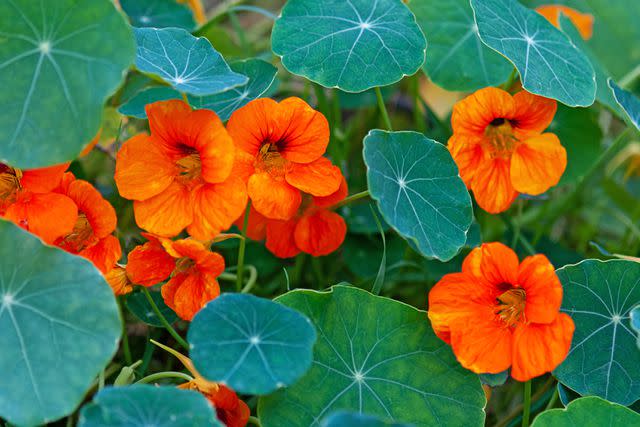
Getty Images/Nadya So
For a touch of tropical aesthetics— and a pest distractor— in your garden, both Lucas and Chapman opt for the warm-toned red, orange, peach, and yellow nasturtium flowers.
"Nasturtiums make a great trap crop," Chapman says. "Pests like aphids and cabbage white caterpillars will eat your nasturtiums rather than your precious vegetables."
3 Great Tips from Gardeners on Controlling Pests
Plant to encourage pollinators and predatory insects
"I plant different varieties to encourage beneficial insects that eat the pests that ruin my flowers, like thrips," Lucas says. "Spending the time to cultivate a healthy ecosystem of predatory bugs helps, and keeps chemicals out of your garden."
Use natural scents and sustainable solutions
Aromatic plants and herbs help to repel pests or distract them from the crops you are trying to grow, according to Kream. For example, the strong scent of the thyme and chives helps to deter pests by masking the scent of the veggies and flowers you want to protect.
"Using herbs or distraction plants like edible nasturtiums ensures your plants get some protection, but the space is still being put to good use," Chapman says.
Research in advance
Spoonemore suggests considering your companion plants well before the first pest finds its way to your vegetable garden. Research companion planting and organic pest management tips when you're adding crops to your garden.
Read the original article on The Spruce.

